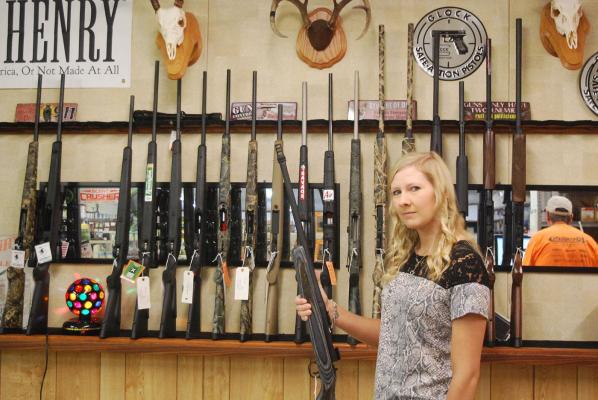Second Amendment Trumps Coronavirus
When the coronavirus first emerged and began spreading from town to town across the United States, few could have ever guessed that it would create a conflict with the Second Amendment.
Demand for firearms skyrocketed in response to the uncertainty surrounding the global pandemic, yet shutdowns in some states closed off the only legal avenue for purchases.
Many local and state authorities shut down businesses, including gun stores and gun manufacturers, in an attempt to slow the spread of the disease. However those actions appear to have inadvertently infringed on the Constitutional rights of citizens seeking to purchase firearms to protect themselves and their families during the crisis.
Texas State Representative Dustin Burrows (R-Lubbock), Chairman of the Texas House Committee on Ways & Means, pushed back on the issue — along with organizations such as the Texas State Rifle Associaiton and the National Rifle Association — and gun dealers, ranges and manufacturers were eventually added to the list of essential businesses at both the state and federal level.
Recently, local governments across Texas, such as Austin, Lubbock, Waco and Bexar, Dallas and Travis Counties, issued orders to close all ‘non-essential’ businesses within city limits, with no exemptions for gun stores.
According to the Texas State Rifle Association (TSRA), these actions could violate the state firearms preemption law, which restricts the authority of cities and counties to enact a patchwork of regulations affecting the sale and transfer of firearms.
“During an emergency, food, water, shelter and adequate medical care are paramount for survival, but so too is the ability of an individual to protect his or herself, as well as their family, home, business and property,” wrote the TSRA in a public statement. “The lines of customers outside of firearm retailers in recent days is testament to the fact that they believe the ability to exercise their constitutional rights protected by the Second Amendment is essential, as they may find themselves facing situations where they need to be their own first responders.”
Jackson County has been a supporter of its citizens’ Second Amendment rights, and the county’s recent Local State of Disaster Declaration did not place any restrictions on gun retailers or gun owners.
“Gun shops are important to our county, state, and country’s infrastructure,” said Jackson County Judge Jill Sklar. “They (gun shops) were deemed essential because of both personal protection and the means to bring dinner to the table, especially in times of crisis.
“A couple of months ago,” added Sklar, “Jackson County adopted a resolution supporting our resident’s Second Amendment Rights, this becomes even more important during these uncertain times.”
Rick Kresta, owner of Double R Firearms in Edna, agrees.
“There’s a lot of uncertainty out there right now and people need to be able to protect themselves. Buying guns and ammo is a good thing,” Kresta said.
Kresta also commented that the Jackson County community is largely rural so there are many people who hunt and fish. If retailers are locked down and food becomes scarce, people with firearms can hunt and live off the land.
“People need to take care of themselves,” he said.
On March 31, 2020, Texas Governor Greg Abbott issued an executive order implementing Essential Services and Activities Protocols for Texas that overrides previous local orders and runs through April 30th.
The new state protocols allow exceptions for essential activities and services based on the Department of Homeland Security's guidelines on the Essential Critical Infrastructure Workforce, which includes “workers supporting the operation of firearm or ammunition product manufacturers, retailers, importers, distributors, and shooting ranges.”
The Department of Homeland Security (DHS) also added gun dealers, ranges, and manufacturers to its official list of essential businesses. The updated guidance from DHS now considers “workers supporting the operation of firearm or ammunition product manufacturers, retailers, importers, distributors, and shooting ranges” to be essential. Those industry workers are listed under the designation for “law enforcement, public safety, and other first responders.”

